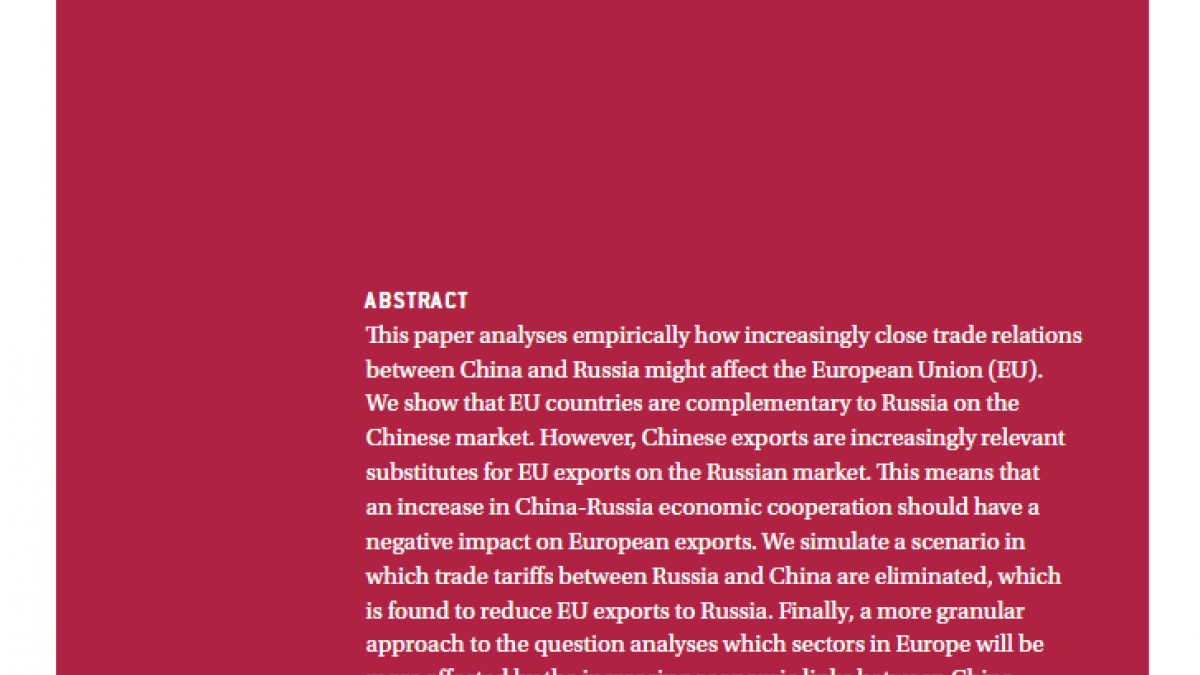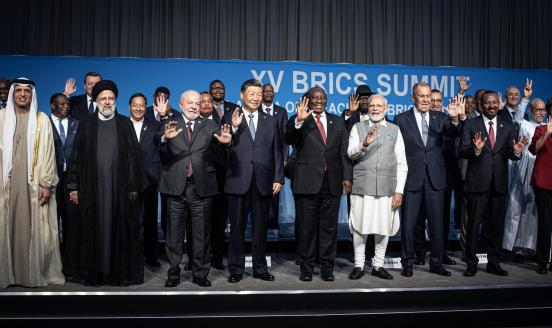The China-Russia trade relationship and its impact on Europe
This paper analyses empirically how increasingly close trade relations between China and Russia might affect the European Union.

EU countries are complementary to Russia on the Chinese market. However, Chinese exports are increasingly relevant substitutes for EU exports on the Russian market. This means that an increase in China-Russia economic cooperation should have a negative impact on European exports.
The authors simulate a scenario in which trade tariffs between Russia and China are eliminated, which is found to reduce EU exports to Russia.
Finally, a more granular approach to the question analyses which sectors in Europe will be more affected by the increasing economic links between China and Russia, and finds that electronic machinery, equipment and machinery, and nuclear reactors will be particularly affected.
Such findings obviously show quickly China is moving up the ladder in terms of export structure and how strategically important it is for Europe to continue upgrading its industry to compete at the highest level of that ladder.



